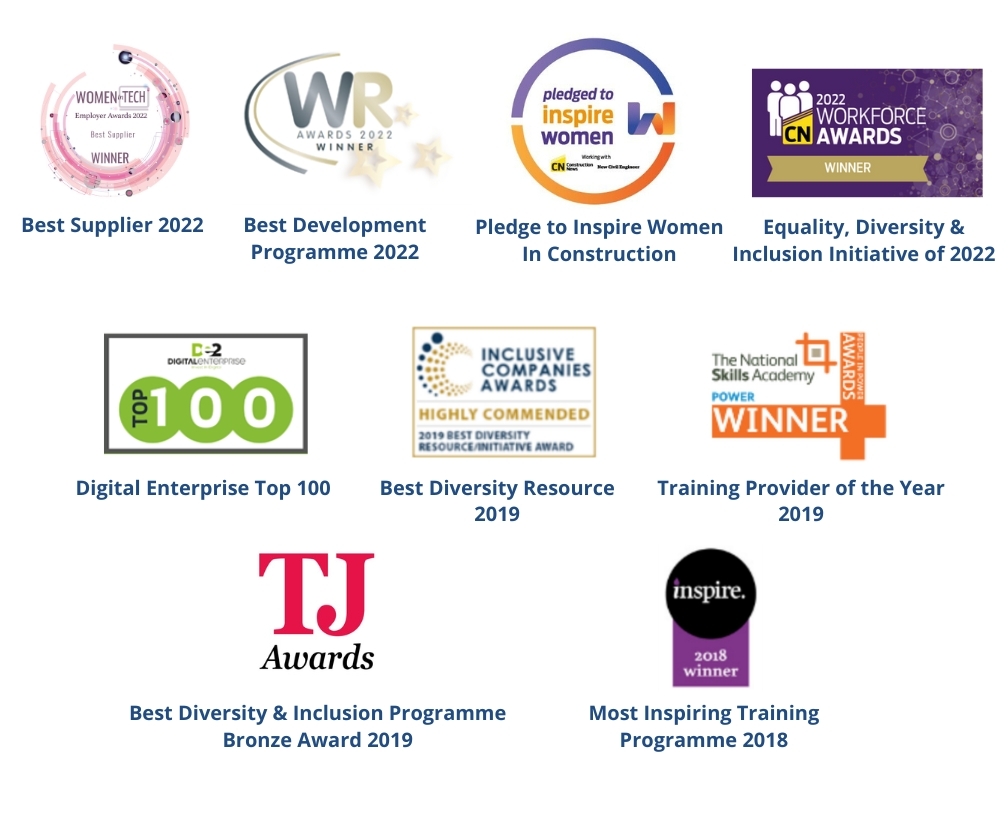In today’s globalized world, cultural diversity plays a pivotal role in shaping workplaces. As a STEM specialist training provider, Skills 4 recognises the significance of fostering an inclusive work environment. This blog explores the overarching cultural diversity in the United Kingdom and delves into how it influences workplaces. By understanding the examples, meaning, importance, challenges, and benefits of cultural diversity, organisations can create inclusive cultures that celebrate differences and harness the power of multiculturalism.
The United Kingdom is renowned for its rich tapestry of cultural diversity, proudly celebrating a long history of embracing various ethnicities, languages, religions, and traditions. From indigenous communities to waves of immigration, the UK stands as a wonderful melting pot of diverse cultures. The UK’s workforce mirrors this vibrant mosaic of backgrounds, experiences, and perspectives, creating a fertile ground for innovation and growth.
The UK’s cultural diversity is exemplified through its multicultural cities, where individuals from diverse ethnic backgrounds and cultures, on the whole, coexist harmoniously. London, for instance, showcases an array of cultural festivals, international cuisines, and communities originating from every corner of the globe. Moreover, cities like Manchester, Birmingham, and Glasgow are renowned for their cultural vibrancy, with a thriving mix of communities contributing to their social fabric.
Cultural diversity in the workplace is visible through a multitude of dimensions, encompassing ethnicity, race, gender, age, religion, and language. Employees bring with them distinct cultural practices, communication styles, work ethics, and problem-solving approaches. This diversity amalgamates individuals with unique perspectives and skill sets, fostering creativity, collaboration, and an extensive range of ideas.
For instance, a workplace may comprise a team of software engineers from different cultural backgrounds, each offering diverse problem-solving approaches influenced by their upbringing and experiences. This diversity of thought stimulates innovation and leads to a comprehensive analysis of challenges, resulting in effective solutions. Furthermore, individuals from different cultures may possess different language skills, enabling effective communication with customers and stakeholders from a variety of backgrounds.
Cultural diversity in the workplace embodies the presence of employees from various cultural backgrounds and the inclusion of their perspectives and contributions. It signifies the recognition, respect, and valuing of differences, creating an environment where everyone feels heard, valued, and supported. An inclusive culture embraces diversity, promotes equity, and ensures equal opportunities for all employees to thrive and reach their full potential.
By embracing cultural diversity, workplaces foster an atmosphere of acceptance, where individuals can express their authentic selves without fear of prejudice or discrimination. This inclusivity creates a sense of belonging, boosting employee morale and engagement. When employees feel valued for their unique cultural backgrounds, they are more likely to contribute their best work, leading to increased productivity and innovation.
Cultural diversity is of paramount importance for organisations to remain competitive and responsive to the diverse needs of their customers and stakeholders. By embracing cultural diversity, workplaces can tap into a vast pool of talent, harness innovation, and gain a competitive edge. Moreover, it enhances employee engagement, satisfaction, and retention, as individuals feel a sense of belonging and are more likely to contribute their best.
Organisations that value cultural diversity are better equipped to understand and serve their diverse customer base. Employees from different backgrounds bring unique perspectives and insights, enabling businesses to tailor their products and services to a broader range of customers. Furthermore, diverse teams foster a culture of learning and growth, as individuals are exposed to new ideas and experiences that challenge their assumptions and expand their horizons.
While cultural diversity brings numerous benefits, it also presents challenges that organisations must address. Language barriers, communication misunderstandings, and cultural clashes can hinder effective collaboration and teamwork. Stereotypes, biases, and unconscious discrimination may exist, undermining inclusivity. However, by fostering cultural competence, providing diversity training, and promoting open dialogue, organisations can overcome these challenges and create an inclusive work environment.
Organisations which invest in training to equip employees with the skills and knowledge necessary to navigate cultural differences sensitively and effectively have a competitive and talent-attraction advantage over those that do not. By promoting open dialogue and creating spaces for respectful discussions, misconceptions and biases can be addressed, fostering understanding and empathy among team members. Additionally, organisations should establish clear communication channels and encourage employees to express their cultural identities, creating an environment where diverse perspectives are valued.
Cultural diversity enriches workplaces by fostering a culture of learning, understanding, and empathy. It encourages diverse perspectives and alternative approaches to problem-solving, leading to innovation and better decision-making. Moreover, it enhances cultural sensitivity, expanding market reach and improving customer relations. By celebrating cultural diversity, organisations can build a strong employer brand, attract top talent, and improve employee morale and productivity.
Diverse teams bring a wealth of knowledge and experiences, resulting in innovative solutions and a broader range of ideas. By embracing different perspectives, organisations can anticipate and adapt to the changing needs of their diverse customer base, gaining a competitive advantage. Furthermore, an inclusive work environment that values cultural diversity promotes employee well-being and job satisfaction. When employees feel accepted and valued for their unique backgrounds, they are more likely to be motivated, engaged, and productive.
Cultural diversity is not merely a buzzword but a powerful force that shapes the modern workplace. Skills 4 recognises the transformative potential of cultural diversity. By understanding the examples, meaning, importance, challenges, and benefits of cultural diversity in the workplace, organisations can create inclusive cultures that capitalise on the strengths of multiculturalism. Embracing cultural diversity is not only vital for the success of businesses but also for fostering a harmonious and equitable society.
The latest trends in the UK Engineering workforce show us that while the proportion of engineers who are female or from minority ethnic backgrounds is on the increase, the overall percentage is still very low with female engineers making up 16.5% of the workforce, and people from minority ethnic backgrounds making up 11.4%.
There is plenty of work still to be done and our Unconscious Bias Workshop is the perfect place to learn more.
